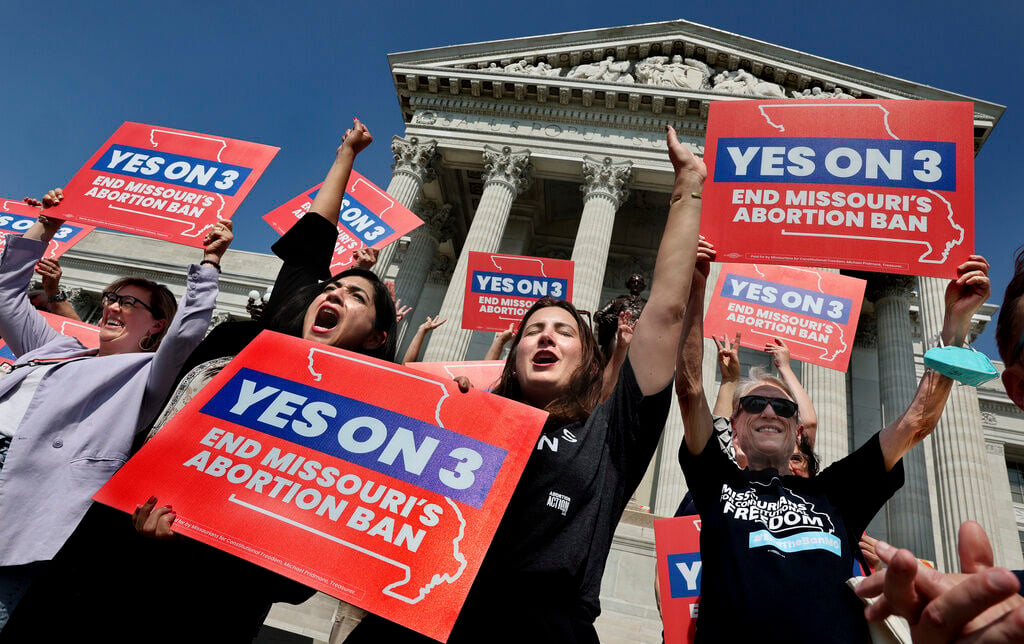JEFFERSON CITY — Missouri Republicans are moving forward with a ballot question to partially reverse the state’s new constitutional right to an abortion.
The House Children and Families Committee on Tuesday was scheduled to consider a resolution by state Rep. Melanie Stinnett, R-Springfield, that would ask voters to only allow abortions in medical emergencies, fetal abnormalities, or in cases of rape or incest.
In addition, the measure would also ask voters to constitutionally ban hormones, puberty blockers and surgeries for gender transition for minors.
The ballot question could go before voters as early as this year if it passes the Legislature and Republican Gov. Mike Kehoe calls a special election.
Amendment 3, which established the constitutional right to reproductive freedom, was approved with 51.6% of the vote in November.
People are also reading…
But even with the new constitutional right, abortion providers such as Planned Parenthood have not started abortions following a Jackson County judge’s decision in December to leave some abortion regulations in effect.
The new amendment protects the right to abortion up to fetal viability and allows the procedure after that point if a treating health care professional determines it necessary to protect the mother’s life, or her physical or mental health.
It also protects reproductive freedom in general, defined as "the right to make and carry out decisions about all matters relating to reproductive health care, including but not limited to prenatal care, childbirth, postpartum care, birth control, abortion care, miscarriage care, and respectful birthing conditions."
Opponents of Amendment 3 last year used the measure’s broad language to argue the measure would also undo Missouri’s restrictions on gender-affirming care for minors. But others have disputed the claim.
Still, this year, Republicans are attempting to tie the two issues together by including both of them in the proposed ballot question.
Missouri law already restricts hormone therapies and puberty blockers for gender transition for minors, but the restriction expires in August 2027.
In addition to the limits on transgender care for minors, Stinnett’s resolution would also restrict abortions in cases of rape or incest so that no abortions can take place after 12 weeks of gestation.
The woman would also need to provide documentation to the attending physician that rape or incest was reported to law enforcement with jurisdiction at least 48 hours before the abortion.
Stinnett’s resolution also would prohibit abortion if a prenatal screening indicates a disability, unless there is a fetal abnormality.
In addition, the amendment states public funds would be banned for abortions with certain exceptions such as fetal anomaly.
If the resolution clears the House committee, it still would need approval before the full House and Senate before heading to voters.
The legislation is .
Amendment 3, a measure to overturn Missouri's abortion ban, passed in the 2024 election. Lawsuits are on the horizon. Video edited by Jenna Jones.















